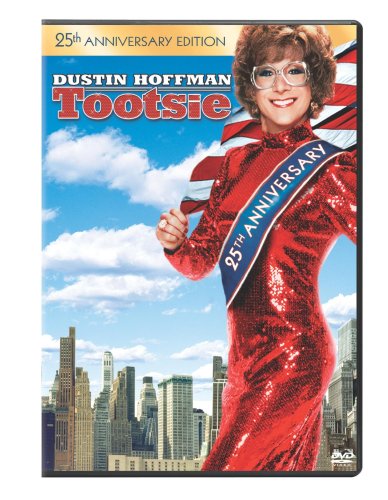Am I the only one who just noticed that it’s Wednesday? The holiday week with the free day is completely screwing me up.
Just to make this a relevant post:
Spend less!
Save more!
Invest!
Wee!
The no-pants guide to spending, saving, and thriving in the real world.

How much would you pay for a kiss from the world’s sexiest celebrity?
That was the focus of a recent study that I can’t find today. There is no celebrity waiting in the wings to deliver the drool, and the study doesn’t name which celebrity it is. That’s an exercise for the reader.
This was a study into how we value nice things.
The fascinating part of the study is that people would be willing to pay more to get the kiss in 3 days than they would to get the tongue slipped immediately.
Anticipation adds value.
Instant gratification actually causes us to devalue the object of our desire.
This goes well beyond “Will you respect me in the morning?”
The last time I talked about delayed gratification, it was in the context of my kids. That still holds true. Kids don’t value the things that are handed to them.
The surprising–and disturbing–bit is that adults don’t, either. If I run out to the store to buy an iPad the first day I see one, I won’t care about it nearly as much as if I spend a week or two agonizing over the decision.
The delay alone adds to the perceived value. The agony turns the perceived value into gold.
If I spend a month searching for the perfect car, the thrill of the successful hunt adds less value than the time it took to do the hunting.
Here’s my frugal tip for today: Delay your purchases. While it may not actually save you any money, you will feel like you got a much better deal if you wait a few days for something you really want.
Put one foot in front of the other
And soon you’ll be walking cross the floor
Put one foot in front of the other
And soon you’ll be walking out the door
You never will get where you’re going
If you never get up on your feet
Come on, there’s a good tail wind blowing
A fast walking man is hard to beat
Put one foot in front of the other
And soon you’ll be walking cross the floor
Put one foot in front of the other
And soon you’ll be walking out the door
If you want to change your direction
If your time of life is at hand
Well don’t be the rule be the exception
A good way to start is to stand
Put one foot in front of the other
And soon you’ll be walking cross the floor
Put one foot in front of the other
And soon you’ll be walking out the door
If I want to change the reflection
I see in the mirror each morn
You mean that it’s just my election
To vote for a chance to be reborn
Life may be like a box of chocolates, but it is certainly not a game of Sorry, where one person wins at the expense of all others. It is entirely possible for everyone to win in most voluntary interactions.
For example, if my company gives me a $10,000 raise, it would seem like I win and they lose. I’m getting more money, at the expense of their bottom line, right? Maybe. But what if that raise spurs me on to make an extra $100,000 for the company? That makes it a good investment and a Win/Win scenario.
When I’m dealing with one of my side-business customers or an advertiser, I’m definitely pushing for the Win/Win. Of course I want them to pay me as much as possible, but I also want their repeat business, which won’t happen unless they walk away happy. If I insisted that each of my customers pay the absolute top dollar, I may come out ahead in the short-term, but what about next month or next year? It’s much better for both of us if we can find a happy middle ground.
The four basic forms of interaction are:
1. Win/Lose. This is where I win and you lose. Haha! The problem with a Win/Lose is that the loser isn’t going to come back to play next year. He’s not happy and he’ll probably tell his friends how unhappy he is. This is also the interaction that people are mistakenly assuming when they complain about excessive executive interaction. The CEO is making a million dollars while the folks on the assembly line are stuck with $15 per hour? It’s entirely possible that, if the CEO weren’t doing his job, nobody else would have one. That is, like it or not, Win/Win.
2. Lose/Win. This is where I give up everything, hoping you’ll eventually throw me a bone. It’s a cowardly interaction that won’t work well when dealing with someone playing #1. I’ll keep giving, you’ll keep taking. You go home happy, I go home sore. When it’s done, I won’t do business with you ever again.
3. Lose/Lose. Nobody wins. We fight so hard to get what we want, forcing the other side to give up as much as possible, while they are doing the same. At the end of the day, the hatred is flowing so strong, there’s no possibility of a relationship.
4. Win/Win. Yay! Everybody wins! Everybody’s happy! This will involve some compromise, but hopefully we can reach the happy middle ground where we are both smiling. If I’m looking for a deal that involves you paying me $1000 per month, is it better for me to push to get exactly that, or let myself get talked down to $750? If the $1000 is more than you can afford, so you quit with hard feelings after one month, the ongoing $750 is much, much better for both of us. It is actually in my greedy self-interest to give up that 25% to build our relationship.
Winning doesn’t have to be done at the expense of others. If you do it right, we all win.
Last week, the washing machine in our rental house died. It was older than I am, so this wasn’t really a surprise. It was one of just two appliances we didn’t replace before we moved the renters in.

My wife–bargain shopper that she is–found a replacement on Craigslist. We got it in, then left the dead washing machine next to the replacement, as a warning to any other appliance that thinks it can shirk its assigned work.
This morning, we went over to pull the corpse of our washing machine out of the basement.
Now, I am an out-of-shape desk jockey, my wife is considerably weaker than I am, and a 40 year old washing machine weighs more than 200 pounds.
In the basement.
I’m Superman. Although at one point, I did trade 10 years of the useful life of my right knee in exchange for not letting that thing tumble down the stairs on top of me.
What do you do with a dead washing machine?We could have the garbage company pick it up for $25. Or we could leave it on the curb and wait for some stinking scrapper to take it.
Or…we could join the dark side and scrap it ourselves.
For the uninitiated, scrappers are the people who drive around looking for fence-posts to steal out of other people’s yards, or cut the catalytic converters out of cars parked at park-and-ride bus stops, or steal all of the copper pipes out of your house while your on vacation. Sometimes, they get scrap metal from legitimate sources, I’ve heard.
We decided to go the legitimate route and take the washing machine to the scrap metal dealer in the next town over.
It was pretty easy. We pulled in with the washer in the trailer. A guy on a forklift pulled up and took it, then handed us a receipt to bring to the cashier. She paid us in cash, and we were on our way.
$7.50 richer.
200 pounds of steel, and we made less than $10.
There are people who pay their bills by recycling scrap metal, but I have no idea how. Driving around looking for things to scrap would seem to burn more gas than you’d make turning it in.
Some people scour Craigslist looking for metal things in the free section.
Some people have an arrangement with mechanics to remove their garbage car parts.
Some people are only looking to supplement their government handout checks enough to pay for cigarettes.
Us? We’re going to leave scrapping to the scavengers.

Many remember Dustin Hoffman dressed in drag in the classic film Tootsie, a movie that he now says made him realize how many women he’s missed out on meeting in life simply because he judged them by their looks. Every year women spend thousands of dollars on beauty products and cosmetics, hoping to increase their appearance and become attractive enough to the outside world. Although there are various degrees of beauty, it undoubtedly is usually determined by the amount of money spent to enhance features and upkeep the overall look.
The length of a woman’s hair often creates a more attractive look in the U.S., which is difficult to achieve with flat irons and curlers that create breakage and brittle hair from the heat. Women are now resorting to having hair extensions installed every three to five months to achieve beautiful hair that has a fuller texture and longer length, costing an average of $700. They can resort to shorter hair that saves a large amount of money, but they’re ultimately compromising a large part of their looks.
There’s a reason that celebrities appear more beautiful than the rest of the population, as their high school photos often show them to look like typical people. By spending thousands of dollars on personal trainers, stylists, and makeup artists, their appearance is immediately enhanced with the finest tools and products on the market. They are also able to have help with experts who have more knowledge on what creates the best look for their features.
Although beauty does not have to be expensive (just look at exotic women in Columbia and Brazil who are anything but high maintenance), it unfortunately is a requirement in the U.S. where rich housewives rule the reality shows and runways. True beauty is often defined by breast and waist sized, which few women can live up to, resulting in thousands of dollars spent on breast implants and liposuction, often impossible to attain otherwise.
Beauty may be in the eye of the beholder, but few men will argue that Angelina Jolie is unattractive or that Heidi Klum looks homely. The majority of men can agree when a woman is beautiful, and few women catch attention with a homemade manicure and dyed hair that came from a box. Perhaps going au natural will become a new trend in the coming years, but for now it’s expensive to be a woman, and even more costly to be a beautiful one.